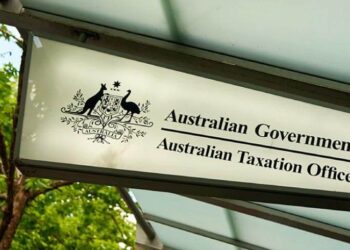Where the member of an SMSF passes away, and they have an asset such as a residential or business property, Colonial First State executive manager Craig Day said clients might ask how they can get that asset out of the super fund, into the estate and then through to a testamentary trust without CGT applying.
Colonial First State senior technical services manager Linda Bruce explained that while Division 128 of the ITAA 1997 provides CGT rollover relief where the deceased’s CGT asset passes to the legal personal representative or the beneficiary of their estate, this only applies where the asset was owned by the deceased individually.
“Where the asset was owned by a different entity, such as a company, trust or a super fund, the Division 128 CGT rollover cannot apply when a CGT event occurs,” Ms Bruce said.
Ms Bruce said this will also depend on whether the asset was supporting the deceased’s retirement phase pension or supporting their accumulation interest.
“If that asset can be paid out of the fund in-specie to the deceased estate, that’s a CGT event and [depending] on whether the asset was actually supporting the deceased’s retirement phase pension or supporting their accumulation interest, you may or may not get exempt current pension income there,” she said.
Mr Day said this means that if a person dies while they’re still in the accumulation phase and were yet to reach retirement, and they’re looking to pass the asset from the SMSF to the estate, that is a disposal by the SMSF and the ATO will want their CGT.
“Often, people will think, well, the death benefit payment is tax-free, and that’s true where it’s going to a tax dependant such as a spouse, but you also need to think about tax at the fund level, and if the fund is disposing of a residential property via an in-specie death benefit payment, then the fund has disposed of an asset and it’s potentially triggered a capital gain, and the ATO will want their 10 per cent of that.”
For pensions, Mr Day said that the rules for non-reversionary pensions state that the pension ceases on death. However, tax exempt continues on income from assets backing the deceased member’s pension from the time of death up until the time the asset is passed out or a new death benefit income stream is commenced.
“So, in this situation, depending on how the fund is set up from a tax perspective, whether it’s segregated or unsegregated, then, yes, we could potentially pass that asset out into the estate, and where that was wholly supporting a pension — so, let’s say a fund that was 100 per cent in pension phase — then no CGT would apply there.”
The tax consequences of an asset passing from the estate through to the testamentary trust trustee, Ms Bruce said, will depend on many different scenarios such as the taxable and tax-free components of the death benefit amount, whether there is any life insurance amounts and if there is an untaxed element.
The bottom line is who the beneficiaries of testamentary trust are, Ms Bruce said.
“Are there any beneficiaries that are not a tax dependant of the deceased member? If any of the beneficiaries fit into that category, then regardless of how many other tax dependants you have in the testamentary trust, then the entire superannuation death benefit proceeds paid from the deceased estate to the testamentary trust will attract tax,” she explained.
“The executor will pay tax. They will pay up to 15 per cent on the taxed element, and up to 30 per cent on the untaxed element.”
Ms Bruce said the CGT implications will also need to be considered with this.
“When the property is passed to the deceased estate, the market value on the date that the property is transferred to the estate will be the cost base of that property,” she noted.
“If the estate is administered very quickly and that property is passed to the testamentary trust straight away, the executor will probably have very little capital gains or capital losses during that period. However, it is a CGT event.”
Mr Day said if the estate took two years to be administered due to disputes or other reasons, and the value of the assets see significant growth, the transfer from the estate to the testamentary trust could trigger CGT.
“If you are looking at assets flowing out of a super fund into the estate and then through to a testamentary trust, you’ll want to get the estate administered as quickly as possible to minimise those capital gains when it transfers from the executor of the estate through to the trustee of the testamentary trust,” he warned.
Mr Day pointed out that where the assets are coming from an SMSF, this is a different situation from where the assets were owned by the deceased personally and the assets pass to the LPR on death and then pass from the LPR to the testamentary trust and there’s no CGT consequences.
“If we’ve got an asset that’s come from an SMSF, for example, then depending on the taxation at the fund level, that will potentially trigger a CGT event,” he said.


